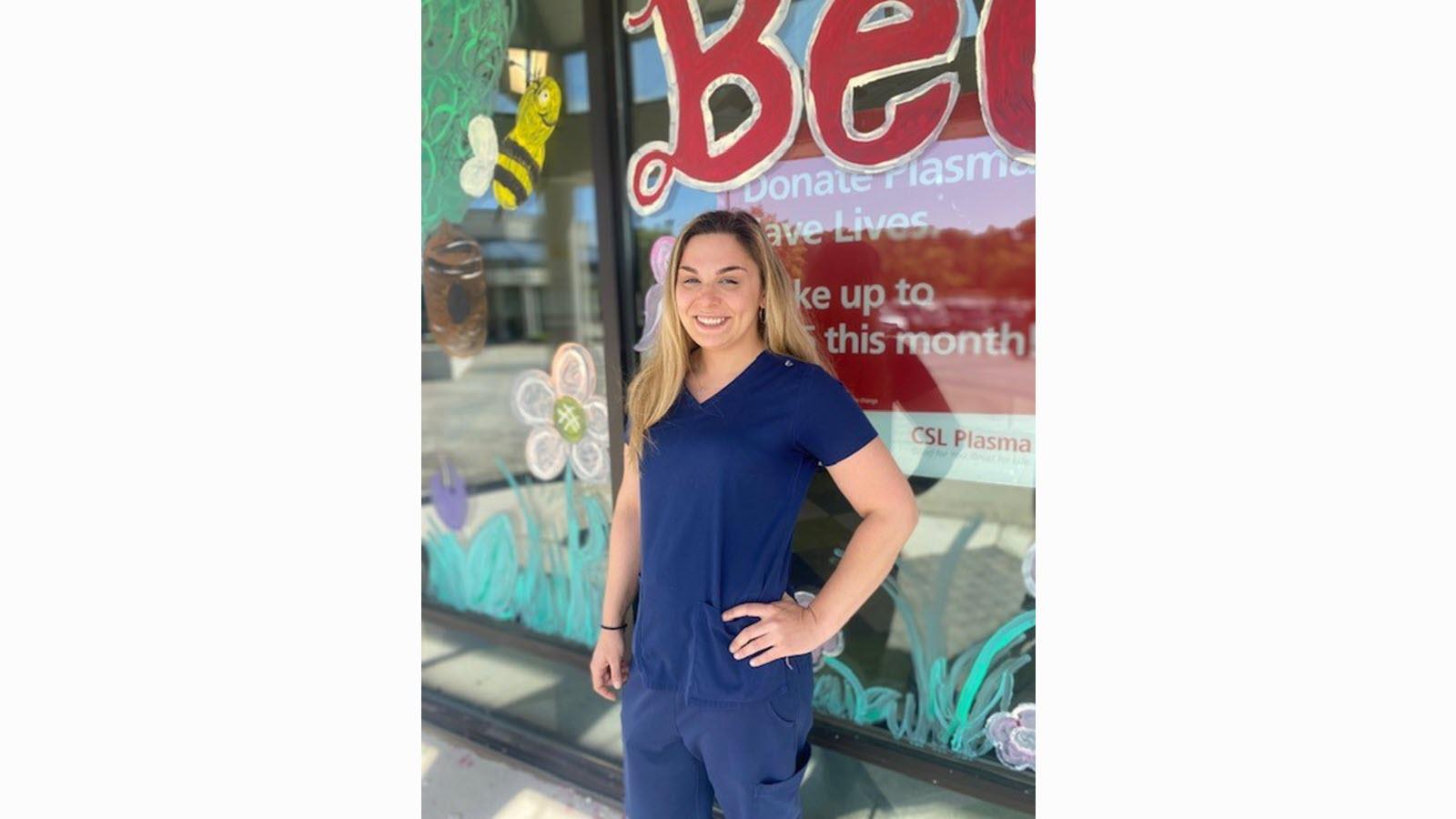Many people have a passion for their work, but Morgan Wood is especially invested in hers.
She’s a group leader for pheresis – the process involved in plasma collection – in Stone Mountain, Georgia. Wood is also a patient who depends on plasma-derived medicine to treat an immune system condition called common variable immunodeficiency (CVID). CVID and other primary immunodeficiencies (PI) make a person more vulnerable to serious infections. Their immune systems are missing parts and don’t work as they should.
Someone who has CVID has low levels of the proteins needed to fight infections affecting the ears, sinuses and respiratory system. Patients also have an increased risk of digestive disorders, autoimmune disorders, blood disorders and cancer. CVID can be inherited, or a person can develop it during their lifetime.
Wood wasn’t diagnosed until age 26 after a history of frequent illnesses, even hospitalizations. Her poor health was so taxing she had to leave nursing school. In a word, CVID was “disruptive,” Wood said. Every time something in her life would seem to be consistent, her PI would flare up resulting in an infection or virus.
“CVID would just come and put an absolute dent in plans,” she said. “I missed a lot of school, work, and also a lot of events and functions that I could have attended with family and friends.”
Now at age 30, she’s receiving treatment and is contemplating a return to nursing school. Wood, who started at CSL Plasma as a phlebotomist, has been with the company for three years. With more than 300 plasma collection centers, CSL Plasma supplies donated plasma to CSL Behring, a global biotech that makes plasma-derived medicines for people who have rare and serious diseases. Plasma is a straw-colored component of the blood that contains important proteins.
Learn more about donating plasma.
“I enjoy the fact that I am helping change and save lives every day,” Wood said. “I enjoy being able to develop, lead and help my team so that they can be the best that they can be in our company, as well as be given all of the opportunities possible.”
What would she say to plasma donors? “I want them to understand how much of a help they are and the difference they are making in the world.” She calls her fellow CSL Plasma employees “undercover superheroes.”
If you suspect you could have an immune system condition, stay persistent, Wood said. She eventually found a doctor who listened and stayed focused until a diagnosis was uncovered.
“Don't give up trying to find answers,” she said. “It takes perseverance.”
Facts About Common Variable Immunodeficiency (CVID)
- CVID is caused by different genetic abnormalities that result in a defect in the capability of immune cells to produce normal amounts of all types of antibodies. The cause of most cases of CVID is unknown.
- CVID occurs in about 1 out of 25,000 people.
- To diagnose CVID, healthcare providers consider different factors including infection history, digestive symptoms, lab tests that can reveal very low immunoglobulin levels, and low antibody responses to immunization.
SOURCE: U.S. National Institute of Allergy and Infectious Diseases, Cleveland Clinic



